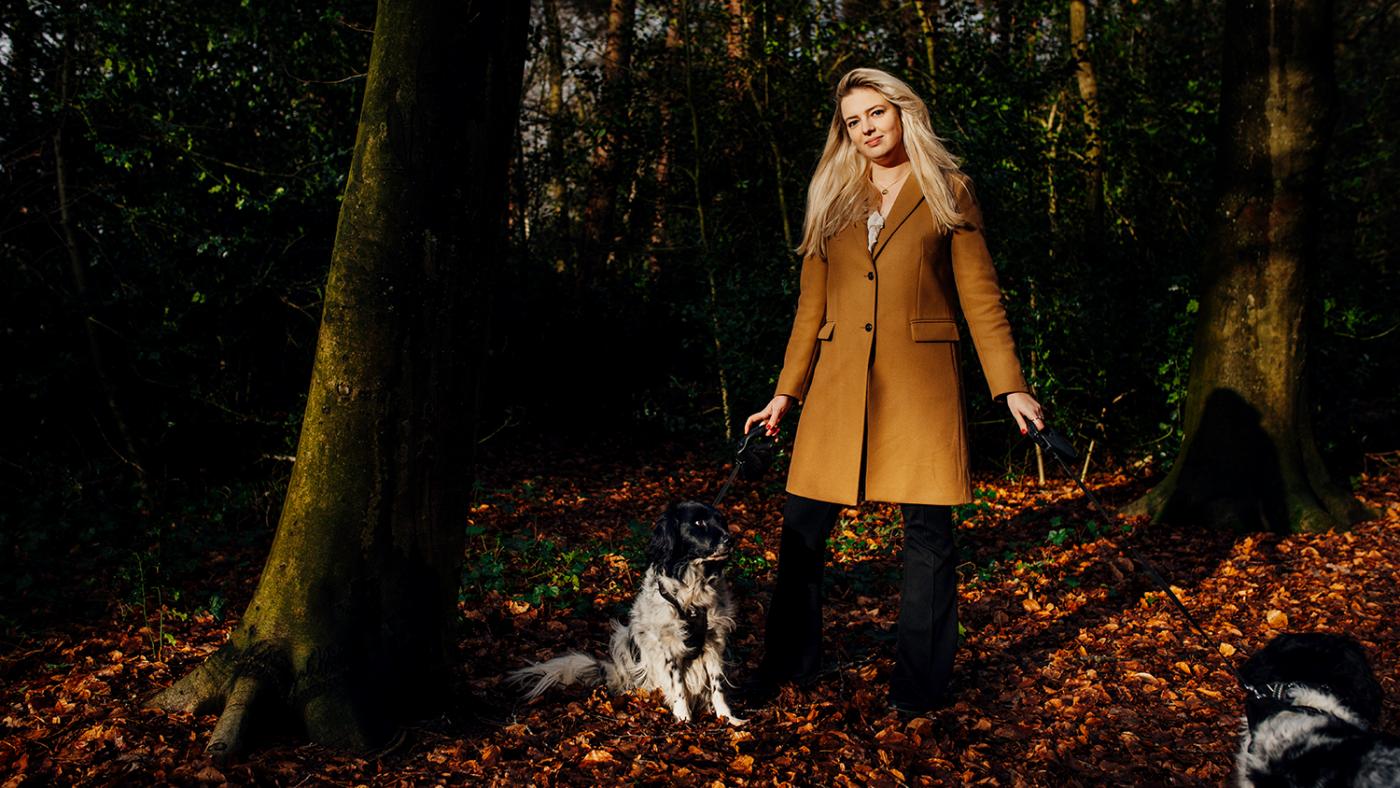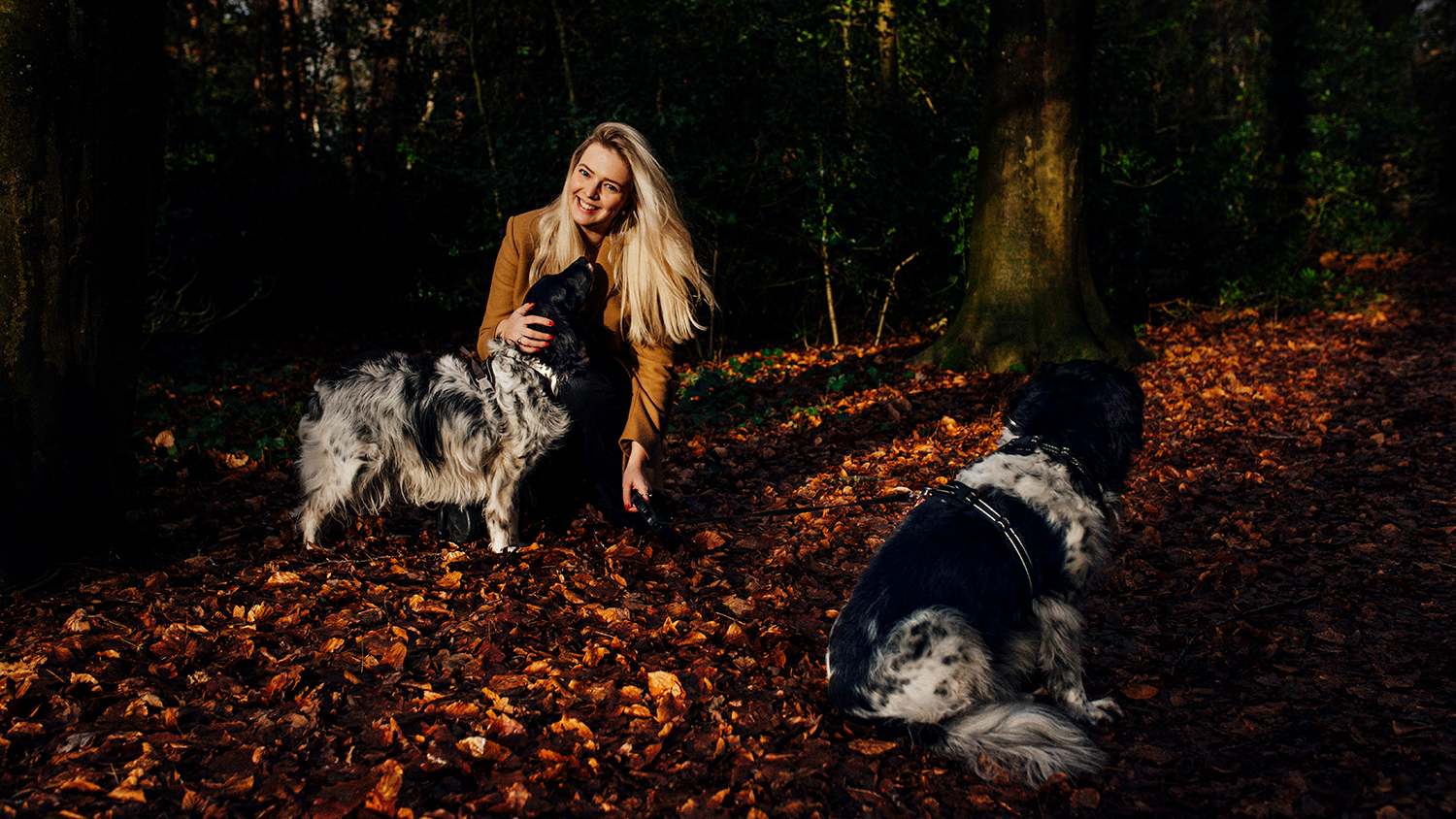After graduation: 'Human welfare is closely connected to animal welfare'

Why did you decide to study Psychology?
"My granddad was diagnosed with Parkinson’s at a fairly young age. So, ever since I was young, I spend time in care homes for people with neuropsychological conditions. This might sound weird, but I was fascinated by it. Thus Neuropsychology was an easy choice for me, but the road towards it took a bit longer. I was first classified in the Havo degree of high school, which qualifies me to attend the university of applied sciences, where I studied for a year, then I did my propaedeutic year and went on to a Bachelor's degree in Psychology. After that, I got a Master's in Neuropsychology" (learn more about the Dutch school system, Ed.)
Neuropsychology is a Master's programme in the healthcare field and you did it during the pandemic. How did that affect you?
"The first lockdown began right after I started my internship. Everything came to a halt for three months. During that time, I was home and working at my side job in the warehouse of a rehabilitation centre, so I had something to do. After that, I was allowed to return to my internship and luckily, do everything just as before, albeit keeping a distance from others and constantly wearing face masks and disinfecting everything. What I regret most is that all my classes took place online, so I didn’t really get to bond with my classmates. I did with my fellow interns though, they were great".
What do you miss most about your university days?
"I now have more structure and peace of mind, compared to my college days. It's also nice to really have the weekend off when the workweek is over. But I wish I had more flexibility. I can't meet up with someone in the middle of the day anymore which makes it harder to make plans with friends. Besides, I'm really not a morning person, so getting up early for work is usually a challenge for me".
Did you actively prepare for your career back when you were a student?
"I worked at the hospital throughout my studies. I started changing beds and later served as a food assistant across several wards. I’ve also worked as a receptionist for four years, and then as a management assistant in a rehabilitation centre. Because of all those side jobs, I knew what things were like in hospitals and in the medical field, which is quite useful now that I’m working at a hospital ward".

Was it hard to find a job after your graduation?
"A temporary position as a neuropsychologist became vacant in the hospital where I was doing my internship, due to someone going on maternity leave. I was offered that position, but that also meant I had to write my thesis and graduate in ten weeks. It was a fantastic opportunity but also very stressful. Fortunately, it all worked out. After that, I started working as a Psychodiagnostics assistant in another hospital, where I also work as a psychologist about one day a week depending on the hours available."
What do you like most about your job?
"My work as a neuropsychologist and psychodiagnostics employee is very dynamic because each case is different. For example, most people know what dementia is, but how dementia manifests itself is different for everyone. It’s a bit like solving a new puzzle with every new patient: what’s their medical history, which medicines are they taking, what other factors are playing a role here? The work is challenging but also very valuable. You help people with your knowledge and insight, which is incredibly satisfying."
What’s your biggest challenge at the moment?
"It’s not so much the work itself that I find challenging but finding a permanent position at the right level. New graduates like me are often dependent on someone else going on leave, and we usually start in temporary positions at hbo level (graduates of a university of applied sciences, Ed). It might even take a couple of years before you can start at a suitable level for a research university graduate. It’s great to have a job, but I am all for clarity and getting on with things. Preferably, I would be working as a neuropsychologist for 36 hours a week. Besides, hbo graduates find it annoying that university students are filling up many of their positions."
Why did you start volunteering at the Animal Welfare Protection after graduating?
"I’ve always wanted to work with animals, but with my side job and studies I never really had the time. When I started working at the hospital, I was working three days a week and had time to spare. I was actually looking for a position in which I could work directly with animals, but then by coincidence, I saw a vacancy for the position of coordinator of the Animal Welfare Protection's Animal Buddy project. I am now coordinating about fifty volunteers who help people with a small social circle and small budget care for their pets. I do this about eight hours a week, but soon I will be sharing the work with another volunteer."
Is there an overlap between your volunteer work and your job at the hospital?
"The people we’re helping through the Animal Buddy project often suffer from chronic illness or mental problems. In that respect, my background in Psychology is definitely relevant. In the hospital, I often hear that people don’t want to go to a care home because they don’t want to lose their pets. Pets can mean so much for people, human welfare is closely connected to animal welfare."
What are your future plans?
"Ideally, I would like to do the GZ Psychology programme (an in-depth training for university graduates, Ed.) in a few years. It's very competitive, so first I need to gain some more work experience to have a shot. Later, I would like to specialise as a clinical neuropsychologist. That programme also comprises a year of management training, which I find very interesting. My ultimate dream is to work in a hospital ward as a manager and also educate others".
This article was written in collaboration with alumni magazine Illuster. Dedicated to the theme 'people and animals' Illuster's latest edition came out on March 25.